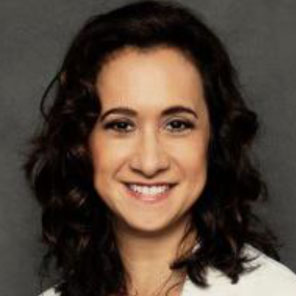By exploring the etiology of disease, functional medicine empowers patients and practitioners to work together to address the root causes of disease and promote optimal wellness.
In 2019, Dawn B. Beaulieu, M.D., a gastroenterologist at Vanderbilt University Medical Center, pioneered functional medicine as an integrated service line within an inflammatory bowel disease (IBD) clinic. Today, functional medicine is available to all Vanderbilt gastroenterology and nutrition patients, and Beaulieu hopes to offer it to other specialties.
“The nature of digestive issues works well as an entry point for the functional medicine approach,” said Beaulieu. “Even when patients’ colonoscopies showed that they were better on medications, many were reporting they still had diarrhea or abdominal pain, or that fatigue or joint pain were still affecting their quality of life. I needed to find a way to do more to help patients feel better.”
Although there are many integrative academic clinics across the country, Vanderbilt is among the few that offer a dedicated functional medicine clinic as an adjunct to their traditional medical care.
“Functional medicine is typically very expensive,” Beaulieu explained. “If you don’t have the money to pay out of pocket, you can’t get it. That’s not our mission here at Vanderbilt; we’re able to provide for patients who might not be able to find functional medicine, access it or afford it.”
A Science-Based Approach
Based on evolving research in nutritional science, genomics and epigenetics, functional medicine practitioners study imbalances in broad, conceptually connected systems like energy, assimilation, and defense and repair as underpinnings of molecular and cellular pathologies.
“Functional medicine providers spend time listening to you and gathering your medical history to create a personal timeline,” Beaulieu said. “We use this information to help identify the root cause(s) of the illness, including triggers and mediators such as poor nutrition, stress, toxins, allergens and genetics.”
Beaulieu, who received certification through the Institute of Functional Medicine, developed a program that incorporates modules focused on movement and exercise, stress and resilience, relationships and networks, sleep and diet.
“Some people aren’t ready for the diet changes and will opt for the nervous system regulation program – mind-body work without the nutrition,” Beaulieu said. “Our goal is to help the patient create a plan to take control of their life.”
Expanding Outreach
Since its initiation in 2019, more than 400 patients have gone through Vanderbilt’s functional medicine program.
Still housed in the IBD clinic, it has expanded to include a dedicated physician assistant who is certified in functional medicine and two wellness coordinators – trained social workers who meet with patients individually and take part in the group programs.
“It is during the one-on-one session where we can do a deep dive with each patient,” Beaulieu explained.
Group sessions are offered multiple times a week via telehealth. Because stress and anxiety are such a big part of chronic disease, the coordinators are trained in Heart Math, a heart rate variability tool that helps bring physical, mental, and emotional systems into alignment.
“I believe if patients are willing to put in the work, our functional medicine program can work for any patient who isn’t feeling better.”
Functional medicine clinicians are now seeing general GI patients along with patients from the concierge clinic. By 2024, Beaulieu hopes to introduce it to other subspecialties within medicine.
“I believe if patients are willing to put in the work, our functional medicine program can work for any patient who isn’t feeling better,” she said.
Proof of Concept
Enrolled patients check in twice a year or more, giving Beaulieu and her team a built-in follow-up for assessing the program’s staying power. Patients report their sleep quality, fatigue levels, IBD-related quality of life and multiple medical symptoms prior to each session using patient-reported outcome measures.
“Since initiation of the program, all the measures have moved in the right direction,” Beaulieu noted. “Over the 10-12 weeks symptoms intensity lessens, and sleep dysfunction drops. If you look at fatigue and overall symptoms, these plunges are exciting.”
Beaulieu noted that collection of research data for functional medicine is still in its infancy. She hopes to develop a more formal research program to examine how functional medicine may impact the body’s microbiome and inflammation at the cellular level.
Beaulieu expresses little concern for the potential placebo effect inherent in a personalized self-assessed program for a disease that has a strong psychological component.
“If patients are feeling better and having better relationships with their family, that is a major victory. Whether this quality of life persists, time will ultimately tell.”




